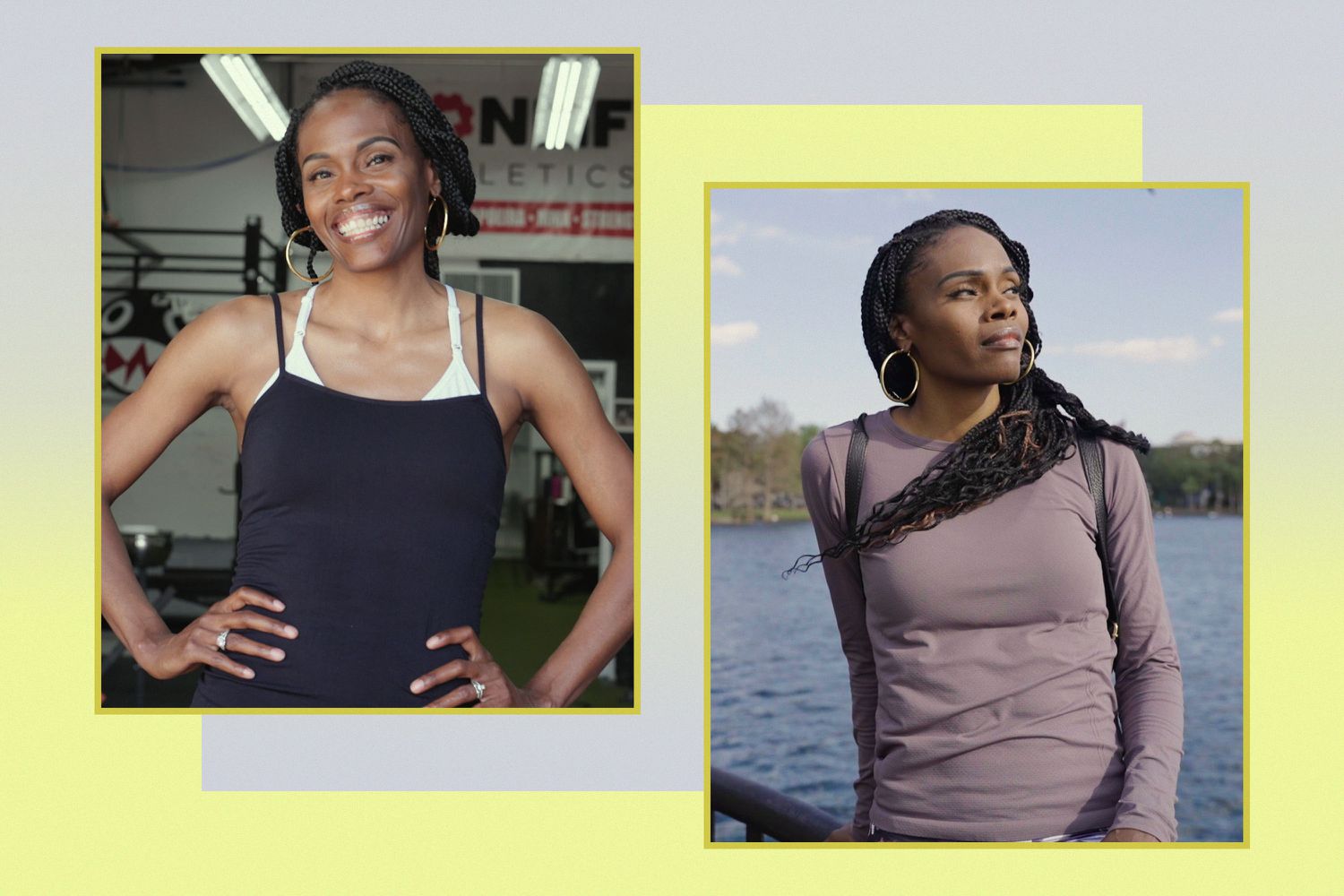Chaunte Lowe, a Four-time Olympian and Cancer Survivor, Reflects on the Strength of Persistence

Four-time Olympic high jumper Chaunte Lowe is a master at overcoming obstacles — both literally and figuratively. 'I believe that resilience is a muscle,' says Lowe. 'It's something that you have to work out each and every day.'
In addition to her physical accomplishments as an American high jump record holder and four-time Olympian, Lowe is also a professional speaker, mother of three, and cancer 'thriver,' which she defines as someone who, no matter the circumstances, finds the optimism and positivity they need to accomplish their goals. 'Throughout my whole entire life, I feel like I've cultivated a life of optimism,' explains Lowe. 'As I face small obstacles, I take that as a challenge to be able to find a solution.'
In the summer of 2019 at the age of 34, Lowe was diagnosed with invasive ductal carcinoma triple-negative breast cancer — an extremely aggressive, fast-growing form of cancer. 'When I heard those words, I was extremely devastated,' she shares. 'I couldn't imagine that a world-class athlete — [and] the healthiest that I had ever been — would face something like cancer.'
In case you don't know, around one in eight women will be diagnosed with breast cancer in their lifetime. Though her diagnosis was hard to grapple with, Lowe had known something was not right and continued to advocate for herself when doctors initially insisted the lump she had felt during her self-breast exam was just a lymph node. 'Had I not listened to my body, [not gone] back for that second opinion, I may not be sitting here today,' says Lowe.
Unfortunately, being misdiagnosed is an all too common occurrence, especially for people of color. 'African-American women are 40 percent more likely than our white-women counterparts to die of this disease,' says Lowe. 'I know that the statistics suggest that there are other women just like me that are being misdiagnosed and not listened to.' And according to the American Cancer Society, when detected early in the localized phase, the breast cancer survival rate is about 90 percent — which makes early (and accurate) diagnoses even more critical.
Like a true athlete, Lowe approached her breast cancer diagnosis as though it was her next Olympic medal journey. 'Once I figured out the process that it took to get to the Olympics one time, I just put that on rinse, wash, and repeat,' says Lowe. She applied that same perseverance toward her breast cancer journey. Lowe started with building her support system — aka coaches and teammates, in athlete terms. She assembled a team of doctors who were able to take her from diagnosis to eventually being cancer free. She also called on her own support system, an essential step to Lowe's path forward. 'I relied on my allies,' she shares. 'I realized I needed to find a community, people who understood what I was going through and would be able to help me through it.'
Her search for support led her to the V Foundation, an organization that has contributed over $310 million toward cancer research over the past 30 years. Once Lowe reached the other side of her breast cancer journey, she wanted to find a way to share the lessons she'd learned about building resilience — both as an athlete and cancer thriver — with others. 'The V Foundation has been amazing in allowing me to be able to share my story and use my voice to advance the research that they're already working toward,' says Lowe.
Since her cancer diagnosis, Lowe has dedicated her time and efforts toward speaking out and spreading awareness for cancer, from big stages such as TEDx to smaller, more intimate engagements. 'I don't care if you have a group of four girls you want me to talk to, you call me up and I will talk to them because my story has value — I understand that is what I have at my disposal,' says Lowe.
Lowe continues to spread awareness in hopes that her story will help others get the diagnosis and care they need to become cancer thrivers. 'My greatest and next goal is to continue to use the gifts that I've been given to be able to spread this message about early detection and research, but also to give inspiration and hope and arm any group with the toolset to be able to persevere because it's the story of my life,' says Lowe. 'What's the point of living life if you don't use it to serve others?'




